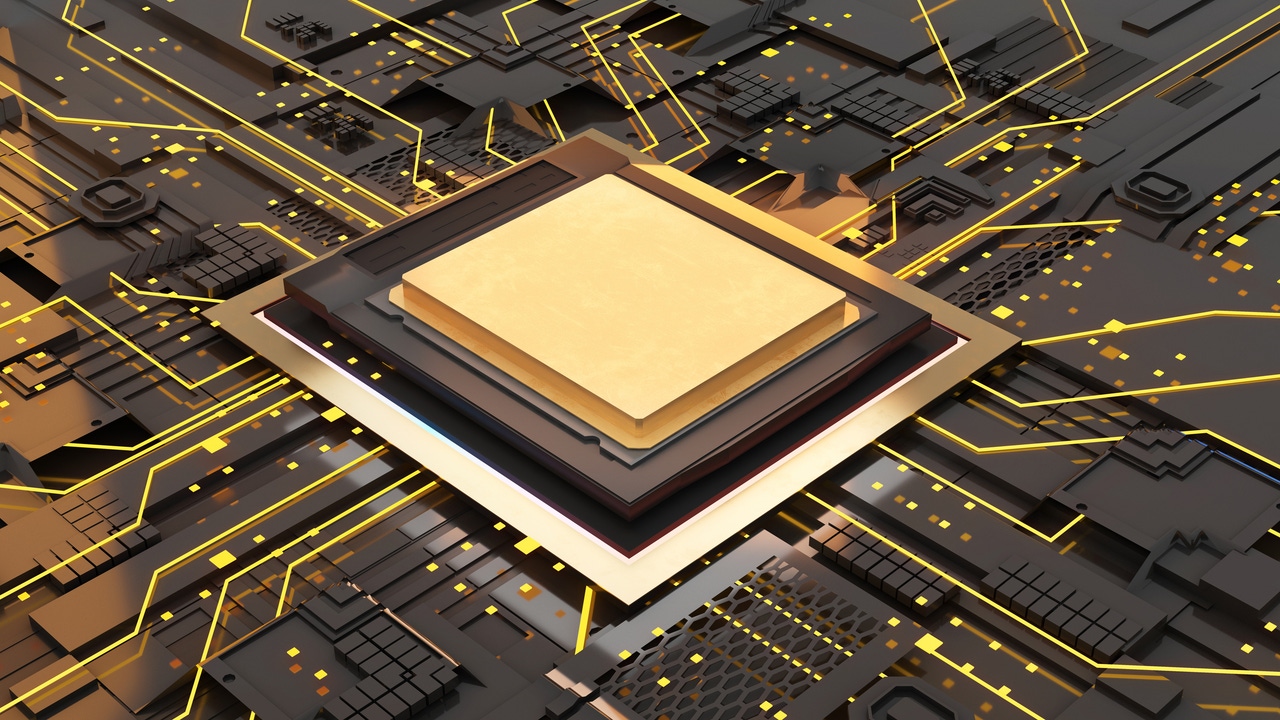
Connects decision-makers and solutions creators to what's next in quantum computing
Quantum Vs. Classical AI Computing: Expert ReactionsQuantum Vs. Classical AI Computing: Expert Reactions
Report suggests AI’s ability to simulate quantum systems poses questions about quantum’s long-term commercial viability

One of the arguments in favor of quantum computing over classical technology is that it naturally excels at modeling quantum behavior, such as creating novel molecules or the reaction of the human body to drugs. This has led to it being hailed as the future for applications including drug development and novel materials for the sustainable energy ecosystem.
However, recent reports, including a viral article from MIT Technology Review, have cast doubt on this often touted benefit. They suggest AI running on classical systems can outperform quantum computing at modeling physics and chemistry, at least in the shorter term.
The argument is nuanced by evidence that quantum computing could accelerate AI systems and bring down its substantial and growing energy demand.
Quantum and AI experts have weighed in to examine the truth behind the claims.
Rodrigo Madanes, global innovation AI officer, EY
AI and quantum computing form more of a partnership than a competition
Although the race between classical AI and quantum computing is heating up, it’s more of a partnership than a competition. These technologies are a dynamic duo – each excelling in areas where the other falls short. It’s true that AI’s capabilities are currently solving problems at scale today, giving it the edge in the near term. But even AI has its limits, especially when it comes to problems involving deep complexity that are not amenable to be solved with existing classical compute architectures. That’s where quantum computing steps in, offering the potential to overcome these challenges and push boundaries further.
Take our work with Dell, for instance. We’ve developed quantum optimization algorithms that use stock market data to improve portfolio management. By leveraging quantum annealers and simulators, we are discovering innovative methods to optimize financial portfolios. These approaches eliminate the need for the time-consuming development of specialized techniques and the implementation of custom solvers required by classical systems. Another example is our collaboration with SandboxAQ, where we created ChemSim. This platform has helped a Fortune 500 company cut its PFAS pollution by over 90%. With new regulations and the EPA committing $1 billion to address PFAS, this platform has helped to cut time-to-discovery from years to just two months.
The big question: When will quantum pull ahead of classical compute in key areas? Many experts believe the chance of Q-day happening before 2030 is over 50%. Businesses are taking it seriously, pouring billions into preparation. Those who don’t start implementing post-quantum cryptographic solutions now risk falling behind by the time quantum becomes mainstream.
Chris Ballance, co-founder and CEO, Oxford Ionics
Quantum computing will be able to solve challenges that no form of classical computing can
AI and quantum computing are both very exciting technologies that are generating a lot of buzz at the moment. But ultimately, AI and quantum are not solving the same type of problem, so comparing the two can distract from the broader point.
Machine learning and AI use the fundamentals of classical computing to enhance productivity, save time, and act as a force multiplier for human teams. With AI, organizations can leverage a large amount of classical compute power to find a solution to a poorly specified problem – all without having to spend any developer time working out the algorithm. However, because it's built on the principles of classical computing, it is still limited in its ability to solve certain types of problems.
Quantum computing on the other hand represents a paradigm shift in the type of computing power we have at our disposal. Not only will quantum computing be able to solve certain problems faster, more efficiently, and with less power – it will completely revolutionize our ability to solve challenges that would otherwise be completely impossible using any form of classical computing, be it conventional compute or AI.
Rahul Tyagi, CEO, SECQAI
Combining classical and quantum approaches can tackle large quantum systems more efficiently
Quantum computing has already demonstrated its potential to solve problems that are currently intractable for classical systems. One prominent example is in the field of cryptography, where quantum algorithms can theoretically break classical encryption methods. Another example is in optimizing logistics and supply chains, where quantum algorithms can provide solutions that are far more efficient than classical methods.
As for the timescale, it is challenging to predict exactly when quantum computing will overtake classical AI in all aspects of modeling quantum systems. However, the development of quantum computing is on an accelerated path. Teams such as ours at SECQAI, an inception partner with NVIDIA, are leveraging advanced architectures like NVIDIA's “Grace Hopper” to push the boundaries of quantum simulation.
By creating hybrid systems that combine classical and quantum approaches, we can tackle large quantum systems more efficiently. This synergy is not only practical but also crucial in the transition period as we develop fully-fledged quantum computing solutions.
While classical AI currently holds an edge in modeling certain quantum systems, the future belongs to quantum computing. The potential of quantum computers to solve certain complex, large-scale problems is unparalleled, and we are witnessing the dawn of this transformative technology. As we continue to innovate and integrate quantum solutions, it is crucial to stay informed, invest in research, and prepare for the quantum revolution that lies ahead.
Yuval Boger, chief commercial officer, QuEra Computing
A hybrid quantum-classical approach could be the most effective future direction
While AI has indeed shifted expectations, quantum computing still holds unique potential in areas AI struggles to reach. How soon quantum computing will have a transformative commercial role remains to be seen, but it has significant value as a tool for pushing the boundaries of fundamental science. In the short term, however, AI’s cost-effectiveness and capability make it a more practical choice for many industries, placing commercial pressure on quantum computing to deliver on its long-term promises.
AI can model certain quantum properties with high accuracy, reducing the need for quantum computers in some applications. However, there are strongly correlated systems, e.g., high-temperature superconductors, where classical and AI models still struggle. Quantum computers theoretically have an advantage here, especially once they become fault-tolerant and scalable, but that hardware is still in development.
Quantum computers operate under the same rules that govern quantum systems, potentially enabling them to simulate strongly correlated interactions more naturally than classical computers can. However, this is currently more of a theoretical advantage; only when quantum hardware scales significantly will we know if this promise holds true across real-world applications.
Many in the field see a hybrid approach as the most effective future direction. Combining classical, AI-driven methods for less complex problems with quantum algorithms for cases where quantum effects are strong could allow researchers to leverage the strengths of both technologies. This approach acknowledges both AI’s rapid advancements and quantum computing’s potential.
Many experts view quantum computing as a long-term investment in fundamental science rather than a technology with immediate, widespread commercial applications. Quantum computers could eventually unlock deeper insights into fields like statistical mechanics, high-energy physics, or quantum field theory, which are traditionally difficult to study. However, these applications are years, if not decades, from realization.
Another important point is that AI systems need to be trained and quantum computers offer the opportunity to create training data for AI systems by simulating complex molecules, providing data beyond what is available experimentally. This was covered very recently at the Quantum + AI conference in NYC by researchers from Microsoft and others.
Quantum computing is unlikely to “overtake” AI in the traditional sense, as they are fundamentally different technologies with distinct strengths. However, we might consider a future where quantum computing achieves a competitive advantage in specific areas, particularly in solving complex, high-value problems that classical AI struggles with, such as strongly correlated quantum systems or advanced materials science simulations.
In the three- to five-year timeframe, computing will mostly serve experimental and niche purposes. We can expect small-scale demonstrations of quantum advantage in narrowly defined problems, potentially in chemistry and materials science.
Stefan Leichenauer, vice president of engineering, SandboxAQ
Quantum computing will be applied only to the hardest parts of the hardest problems
The MIT Technology Review article summarizes the situation quite well. With the rise of GPUs and AI, classical computing has already proven to be extremely effective in tackling real-world, quantum-native problems, such as those found in drug discovery and materials design. This classical approach will continue to make rapid progress and become more and more capable. That said, there remain some quantum-native problems that are simply too complex for classical computers to solve, regardless of any advances in computational power or algorithmic techniques, AI included. The key question is how many of those ultra-complex problems have practical utility rather than purely academic interest and today, we don’t know the answer.
Quantum computers are still too primitive today to solve most classically intractable problems. The usual example where quantum computers have an exponential advantage is Shor’s algorithm for factoring large numbers, though it will be some years before we have quantum computers capable of executing it at scale. To date, the only classically intractable problems solved on real quantum computers have been artificial ones designed solely for that purpose. Quantum-native problems found in chemistry and physics are the best source of potential future utility for quantum computers, but even in those domains, it will only be the thorniest problems where quantum computers are necessary.
For the foreseeable future, quantum computing will be applied only to the hardest parts of the hardest problems, while all workflows will continue to rely heavily on AI and classical computing. Even as we scale quantum computers, classical AI-driven computing will handle the majority of computational tasks, with quantum computers stepping in only where they’re uniquely suited. We’re still years away from quantum overtaking classical computing, but AI will always play a critical role.
Eleanor ‘Nell’ Watson, IEEE member, AI ethics engineer and AI Faculty, Singularity University
Quantum machine learning promises theoretical speedups for specific machine learning tasks
Artificial intelligence systems, such as reinforcement learning, can now handle complex, non-linear, unbounded problems like protein folding and steering fusion reactors – these capabilities rival the promise of quantum, at a much lower cost and complexity and greater scalability. It's also possible to emulate many of the capabilities of quantum computers within classical ones, side-stepping the need for quantum hardware in some circumstances. Typically, this is prohibitively slow and complicated to do, but for some basic processes, it's fast enough.
Moreover, machine intelligence helps us to optimize various algorithms, which also negates some of the potential value of quantum. For the past 20 years, there has been a constant pattern of a new development in quantum finding a niche application where it's useful, such as in a hedge fund, only for a new algorithmic optimization to render that quantum development moot in a matter of months. AI optimization simply accelerates this iron law.
For near-term practical applications, classical AI may indeed maintain an edge in many domains, particularly where the benefits of quantum computing are offset by technical challenges like error correction and qubit stability. Quantum machine learning (QML) represents an intriguing intersection of these fields, promising theoretical speedups for specific machine learning tasks like quantum neural networks and quantum kernel methods. However, current QML implementations still face major practical challenges, including the overhead of quantum-classical data conversion and the limitations of current quantum hardware. Many proposed QML advantages remain theoretical rather than practically demonstrated.
Gev Balyan, founder and AI Expert, Ucraft
Quantum computing holds unique promise for simulating strongly correlated quantum systems
I believe that, in the short term, classical AI is better suited than quantum computing for many physics and chemistry simulations. Current AI models, particularly neural networks, can already handle large, weakly correlated systems that were initially thought to be prime targets for quantum computing. For instance, AI techniques now rival or even outperform traditional approaches like density functional theory, which has been widely used to simulate molecular structures and properties. In real-world applications like drug discovery and materials science, where time and cost-effectiveness are critical, classical AI is proving highly practical.
However, quantum computing still holds unique promise, especially for simulating strongly correlated quantum systems that AI struggles with. These complex systems, central to future technologies like high-temperature superconductors, are where quantum computing could eventually shine. But with quantum hardware and algorithms still maturing, the gap between AI and quantum solutions remains significant. So, for now, classical AI is the more accessible tool, while quantum computing continues to evolve for more specialized tasks. Ultimately, a hybrid approach may offer the best solution, blending AI’s scalability with quantum’s potential in the most complex simulations.
Cache Merrill, founder, Zibtek
Classical AI outshines as the preferred option because quantum computing is still not fully developed
The cutting edge of quantum computing, undoubtedly, entails insurmountable capacity for exponential problem solving. However, classical AI is that practical workhorse that efficiently performs the modeling and simulations on the outbreak.
Classical AI outshines as the preferred option because quantum computing is still not fully developed, especially in highly complex computational tasks spanning fields such as physics and chemistry. However large language models and their ecosystem tools can handle these scalability issues more effectively than quantum machines, which have yet to demonstrate stability.
Due to this management pillar, all of these obstacles should be handled efficiently without many disturbances, allowing for intricate system modeling without the use of a quantum computer in its rudimentary form, which classical AI’s existing infrastructure affords them. That dependability makes it the ideal candidate for advanced scientific simulations in the near future and beyond.
Thomas Balogun, chartered security professional and cybersecurity expert
Classical AI will remain the more viable option for practical modeling in physics and chemistry
In the debate of classical AI versus quantum computing for modeling physics and chemistry, I believe classical AI has strong advantages in the short term. While quantum computing holds immense promise, it’s still in its early stages, limited by scalability and error rates. Classical AI, on the other hand, has developed rapidly and is already producing meaningful results in complex simulations, often by integrating machine learning with traditional computational methods.
For tasks like molecular modeling, drug discovery and material science, classical AI has shown it can efficiently manage these complex calculations, leveraging high-performance computing resources. By using neural networks and advanced algorithms, classical AI can approximate solutions to complex equations that govern chemical and physical interactions. While quantum computers could theoretically provide exact solutions to these problems, we’re likely years away from a quantum machine that can outpace classical methods in practical applications.
Until quantum hardware and error correction improve, I think classical AI will remain the more viable option for practical modeling in physics and chemistry. In the near term, it offers reliable, scalable solutions that can continue to push forward scientific discovery.
Chad Gerber, founder and chief information officer, Meloscene
We’ll need far more computational power like that promised by quantum computing
This is largely accurate, but only under specific conditions. If we assume we’ve gathered all relevant data in physics and have no major breakthroughs on the horizon, then classical AI can indeed simulate outcomes effectively by running models based on these static data sets. However, this assumption is unlikely to hold.
The reality is that as AI itself advances, it will likely drive further discoveries in physics and other complex fields, generating new data that needs to be integrated and processed. This ongoing influx of information would make classical AI increasingly limited, as it would struggle to handle the exponentially growing data without regurgitating previous findings or facing prohibitive time constraints.
If our understanding of physics keeps expanding, we’ll ultimately need far more computational power like that promised by quantum computing to process the new data efficiently and render genuinely novel insights in a feasible timeframe.
Ashish Devalekar, senior vice president and head of Europe, Mphasis
Quantum computing should be seen as the tool of choice from a holistic point of view
The article itself points out the pros and cons of using classical AI as a tool to solve problems that traditionally haven’t been considered as part of its scope such as mathematical optimization and simulation of nature. It is also important to define classical AI before we make any comments on its utility for such problems. It is very important as the discussion becomes convoluted when we consider that AI of the future may additionally run on neuromorphic computers and quantum computers with a different algorithmic toolset, use cases and performance. The AI in the paper primarily refers to artificial neural network (ANN) based AI running on classical computers, such as a cluster of GPUs. This technology powers chatbots such as ChatGPT.
When modeling complex systems such as materials, batteries and large language models, classical AI solutions are demonstrating scalability over current traditional methods and even delivering practical results but at a huge financial and environmental cost. Also, given the current knowledge, though classical AI has made inroads in these areas, complex problems that require precise modeling will remain out of its purview even in the long run. Quantum computing, on the other hand, is tasked with the goal of efficiently solving these problems given the data representation and algorithmic framework it enables. An exponential increase in problem complexity with a linear increase in problem size translates into more compute memory, compute time and limitations on result quality is something quantum computing, at least theoretically, is supposed to solve. Given these considerations, quantum computing should be seen as the tool of choice when we take a holistic point of view, provided we reach technical maturity in both hardware and algorithms.
About the Author
You May Also Like






